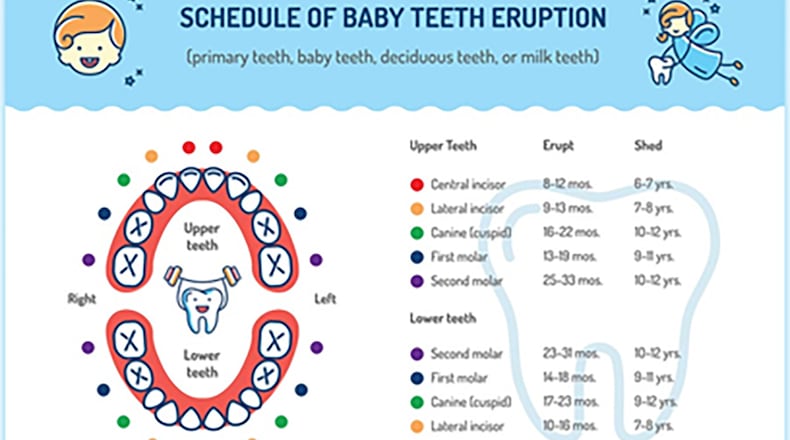Why is this so important?
Primary teeth (also known as baby or milk teeth) are just as important as adult teeth. A healthy mouth is a big part of your child’s overall health.
Tooth decay (dental caries) is the most common chronic disease in children. A toothache can impact a child in many different ways. Not only can a toothache affect your child’s ability to eat, chew and smile, it can also impact the way they learn and perform at school, speak and sleep.
Step No. 1: Establish a dental home
Research and schedule your first pediatric dental visit. It’s never too late. You might also consider a “pre-visit,” so your child can get acquainted with the office before the first appointment.
Find a “home base” where you can take your child for regular checkups, ask questions and provide other dental care needs. A dentist can show you how to properly clean your child’s teeth, discuss dietary habits and educate you on nutritional needs to best prevent the development of dental disease.
Tips for a positive dental visit
· If possible, schedule an appointment when your child will be best rested and cooperative (morning appointments are usually better for little ones).
· Read a fun, informative story or cartoon about dental visits to help set expectations.
· Avoid using dental visits as a threat or punishment, and refrain from using bribes to get your child to go.
· Stay positive and calm. Discuss your concerns and be honest with your dentist if you have any dental anxiety. A child may easily pick up on a parent’s anxiety and become anxious themselves.
· Prepare your dentist and provide them with a complete health history, behavioral patterns and/or any other concerns. Remember, it is a team effort, and we are here for you.
· Try to make all dental visits an enjoyable experience and remember that prevention is key. Good oral hygiene, healthy nutritional habits and a stable dental home can help you establish a firm foundation to a future filled with bright and healthy smiles for your youngster.
About the Author
